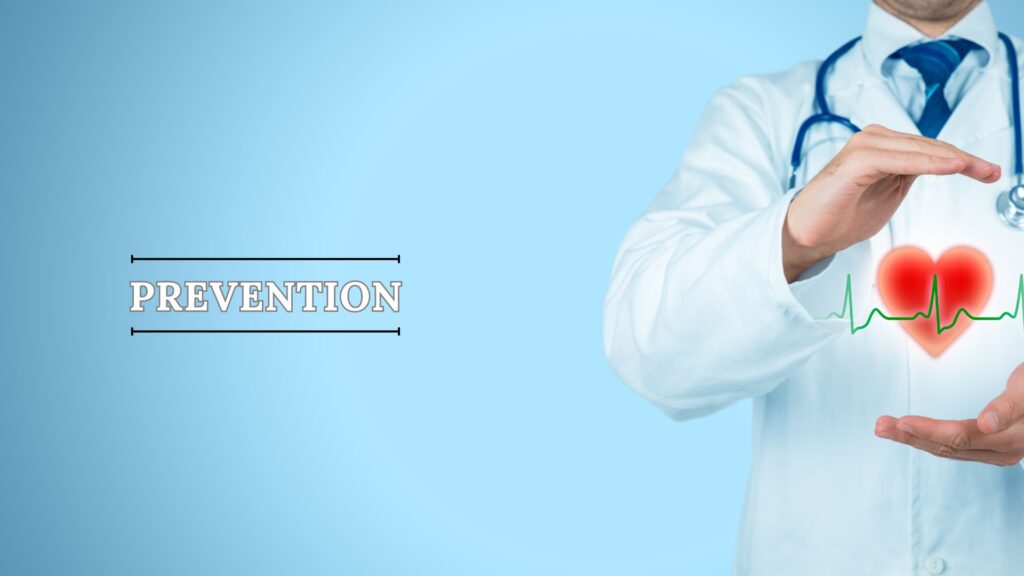
Hypertension, commonly known as high blood pressure, is a medical condition characterized by elevated pressure in the arteries (blood vessels). Hypertension can lead to serious health complications if left untreated, such as heart disease, stroke, kidney disease, and other cardiovascular issues. As per World Health Organization (WHO), around 1.28 billion adults aged 30–79 years worldwide have hypertension and approximately two-thirds of them live in low- and middle-income countries. It is one of the major cause of premature death worldwide.
High Blood Pressure in Ayurveda
The imbalance of doshas cause increase in blood pressure. The aggravated doshas especially vata and pitta dosha cause high blood pressure.
Measurement of Blood Pressure
Blood pressure is measured in millimetre of mercury (mmHg) and consists of two numbers: systolic pressure (the top number), which measures the pressure when the heart beats, and diastolic pressure (the bottom number), which measures the pressure when the heart is at rest between beats.
Normal Blood Pressure
Normal blood pressure is considered to be around 120/80 mmHg. Hypertension is diagnosed if, when blood pressure is measured on two different days, the systolic blood pressure readings on both days is more than or equal to 140 mmHg and/or the diastolic blood pressure readings on both days is more than or equal to 90 mmHg. However, specific thresholds for diagnosis may vary depending on factors like age and other health conditions. If you have high blood pressure, the force of the blood pushing against the artery walls is consistently higher. In this case the heart works harder to pump blood.
It often doesn’t cause noticeable symptoms, which is why it’s often referred to as a “silent killer.” People usually get to know about this when their blood pressure is checked. Symptoms, when present, may include headaches, shortness of breath, nosebleeds, and dizziness.
Risk factors:
It is a multifactorial condition influenced by a variety of risk factors. These risk factors can be categorized into modifiable and non-modifiable factors. Non-modifiable risk factors include age, with the risk of hypertension increasing as individuals get older, as well as genetics and family history. Modifiable risk factors include lifestyle choices such as diet, physical activity level, and smoking status.
Diets high in sodium and low in potassium, high saturated fat and trans fats, low intake of fruits and vegetables, as well as excessive alcohol consumption, are associated with an increased risk of hypertension. Sedentary lifestyles and obesity also significantly contribute to the development of hypertension. Chronic stress and inadequate sleep patterns can also lead to blood pressure issues. Certain medical conditions such as diabetes, kidney disease, and obstructive sleep apnea can predispose individuals to hypertension.

Lifestyle modifications:
Lifestyle modifications are extremely important in managing hypertension effectively. Adopting a healthy diet rich in fruits, vegetables, and lean proteins while minimizing sodium, saturated fats, and cholesterol can significantly lower blood pressure. Maintaining a healthy weight through regular exercise, such as aerobic activities and strength training, not only aids in weight management but also helps reduce blood pressure. Limiting alcohol consumption, quitting smoking, and managing stress through relaxation techniques are also crucial.
Additionally, monitoring blood pressure regularly, adhering to prescribed medications, ensuring adequate sleep, and moderating caffeine intake contribute to overall blood pressure control. These lifestyle changes, when incorporated into daily routines, can complement medical treatments and significantly reduce the risk of hypertension-related complications.
Medications:
Various classes of medications are available, including diuretics, ACE inhibitors, angiotensin II receptor blockers (ARBs), beta-blockers, calcium channel blockers, and others. Treatment is often tailored to the individual’s needs and may involve a combination of medications.
Complications:
Hypertension, or high blood pressure, can lead to various complications if left untreated or poorly managed. Angina or chest pain is a common consequence. It can significantly damage the arteries, which can result in atherosclerosis, a condition where the arteries become narrowed and hardened due to the build-up of plaque. This narrowing can restrict blood flow to vital organs, such as the heart, brain, and kidneys, increasing the risk of heart attacks, strokes, and kidney disease.
Hypertension can also strain the heart as it works harder to pump blood against elevated pressure in the arteries. Over time, this can lead to heart attack or heart failure, a condition where the heart becomes less effective at pumping blood to meet the body’s needs. It may also lead to irregular heart beat which can lead to a sudden death.
Hypertension can damage the blood vessels in the brain, leading to small bleeds or blockages that can result in stroke. Uncontrolled hypertension also poses a risk to the brain, increasing the likelihood of cognitive decline and vascular dementia (brain damage due to strokes).
High blood pressure can affect the eyes, leading to hypertensive retinopathy, which damages the blood vessels in the retina and can cause vision problems or even blindness if left unchecked.

Prevention:
Preventing hypertension, or high blood pressure, primarily involves adopting a healthy lifestyle.
- This includes maintaining a balanced diet rich in fruits, vegetables, whole grains, and lean proteins while limiting saturated fats, trans fats, sodium, and added sugars.
- Regular physical activity, such as aerobic exercises and strength training, can help manage weight and lower blood pressure.
- Avoiding tobacco and excessive alcohol consumption are also crucial steps in prevention.
- Managing stress through relaxation techniques and ensuring regular monitoring of blood pressure levels are essential components of a preventive approach.
- Additionally, adherence to prescribed medications, if necessary, and attending regular check-ups with healthcare professionals contribute to effective hypertension prevention strategies.
- There are various ayurvedic remedies and herbs that can help regularize abnormal blood pressure.
These lifestyle modifications not only reduce the risk of developing hypertension but also promote overall cardiovascular health and well-being.
Monitoring:
Regular blood pressure checks are crucial, especially for those with risk factors or a family history of hypertension. It’s important to have your blood pressure checked at least every two years starting at age 18. Monitoring blood pressure frequently at home with a home blood pressure monitor is recommended for some individuals.
It’s essential to work closely with a specialist doctor to manage hypertension effectively and reduce the risk of associated complications. Treatment strategies may vary based on individual factors, and regular monitoring is crucial for maintaining overall health and well-being.